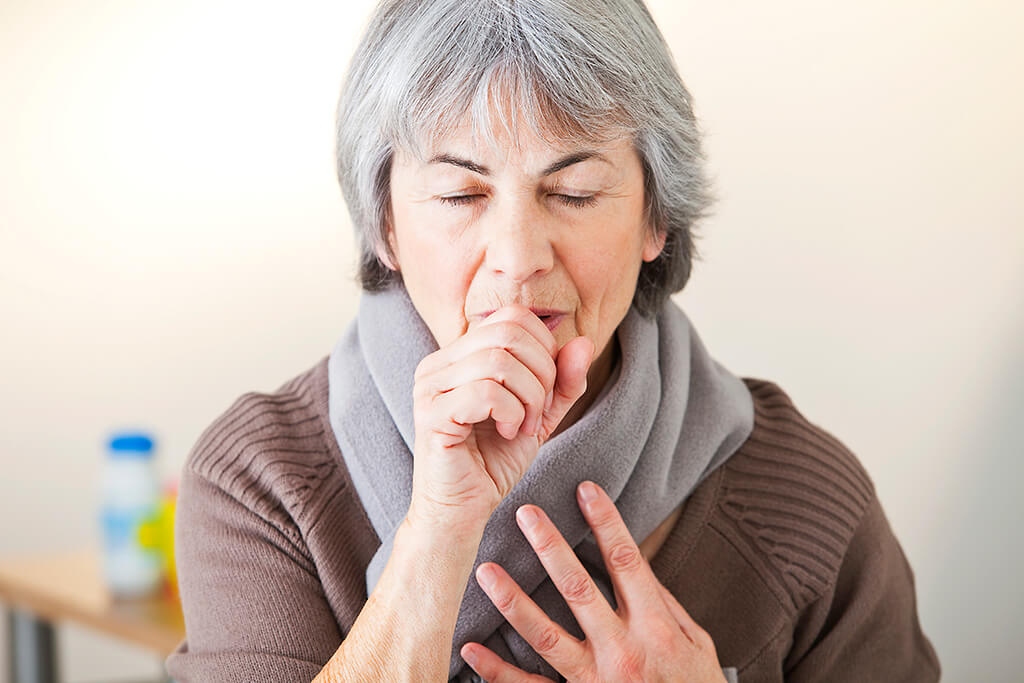Chest Congestion: Causes, Symptoms & Remedies
Chest congestion is a simple umbrella term for too much mucus buildup in your lungs. It often accompanies the common cold or other upper respiratory tract infections. Then these infections tell your body to overproduce mucus. There are a few ways to get rid of chest congestion, but first let’s take a look at what causes it.
Causes of chest congestion
The two most common causes of chest congestion are particles in the air and the bacteria and viruses responsible for upper respiratory tract infections.
Airborne particles
Certain things in the air can enter your body just by taking a breath—such as allergens and dust. Usually, these particles are harmless and become trapped in the mucus membrane of your nose and airways. Tiny hairlike structures called cilia transport these trapped particles along with mucus towards your throat. That mucus can make your chest feel congested.
Bacteria and Viruses
An inhaled virus or bacteria can cause an infection, leading to chest congestion. At first, bacteria and viruses work much like allergens, entering your body through the mucus membrane and being transported by the cilia. But they also cause inflammation, which in turn makes your body produce excess mucus in your airways in an attempt to remove them. Your body may not be able to get rid of this excessive, thicker mucus in the usual ways, and the mucus gets stuck inside your lungs, which results in a congested chest.
Symptoms of chest congestion
When you inhale harmful particles, your body responds in two ways that lead to your chest feeling congested.
Mucus
Creating more mucus can actually be a good thing! It’s your body’s natural fighting response to an irritant. Though it’s one of the most recognizable signs of a chest cold, it does help remove nasty germs from your airways. The texture and color of your mucus might change as your chest cold develops—it may start as thick, clear or white mucus. Then it could turn yellow or green as your cough continues. Green mucus does not necessarily mean you need aggressive treatment or antibiotics. Black mucus, on the other hand, may be a sign of a bigger issue and it’s recommended you should see a doctor.
Cough
You’re likely to develop a cough thanks to all that excess mucus—it’s your body’s first tool to physically getting rid of harmful particles. The presence of extra mucus trips up nerve endings, called mechanoreceptors, and activates your “cough reflex.” While uncomfortable (and yes, kind of gross), coughing up mucus actually helps remove germs from your airways. This cough can start early and continue even after your other symptoms have subsided.
Chest Discomfort
Chest congestion happens when your body creates mucus to stop pathogens from reaching the cells that line your airways. Although the mucus helps protect your body, the excess mucus also triggers coughing and may cause discomfort in the chest.
When to see your doctor about chest congestion
Chest congestion can be annoying, but isn’t always serious. However, you should see your doctor immediately if:
- You develop a fever higher than 100° F
- You're having trouble breathing
- You’re coughing up blood
- Your chest cold is keeping you up all night
- You’re experiencing wheezing
- You have shortness of breath
- Your cold doesn't start getting better in seven to ten days
- You’re seeing black mucus
Remedies to get rid of chest congestion
Gargle with warm salt water
Gargling with warm salt water can help break up some of the mucus. Dissolve a tablespoon of salt into ½ cup of warm water. Gargle for about a minute and then spit out. Do this up to 3 times a day to help thin the mucus.
Elevate your head
Elevating your head at night will help you sleep better when you have chest congestion. With your head lifted, the mucus in your nose and throat more easily drains down into your stomach. Use 2-3 pillows to keep your head raised higher than your torso.
There are simple things you can do at home to get rid of chest congestion. Your main goal is to thin and loosen the extra mucus that’s made a home in your lungs.
Stay hydrated
Drinking lots of fluids can help thin the mucus. Stay away from beverages that dehydrate you, like alcohol or caffeinated drinks.
Steam it up
Steam can do wonders. It can help moisturize your airways and loosen the dried mucus—use a humidifier or cool mist vaporizer. Taking a hot shower can also help you breathe a sigh of relief.
Over-the-counter relief for chest congestion
For a treatment that’s more robust, over-the-counter medicine can help. Medications containing guaifenesin can help thin and break up mucus, so your cough can become more productive and help relieve the chest congestion.
Mucinex® Maximum Strength 12-Hour Chest Congestion Expectorant Tablets break up the mucus that’s bothering you with an extended-release bi-layer system. One layer is for immediate release, while the other is for extended release.
Here’s to your recovery and breathing more easily!
- https://www.mucinex.com/blogs/cold-flu-symptoms/chest-congestion-causes-symptoms-and-remedies
- https://www.mucinex.com/products/mucine®-fast-®-adult-liquid-day-night-severe-congestion-cough-night-shift-cold-flu-2x6-oz
- (black mucus) https://www.businessinsider.com/snot-color-green-yellow-sinus-infection-cold-2016-1#-6









